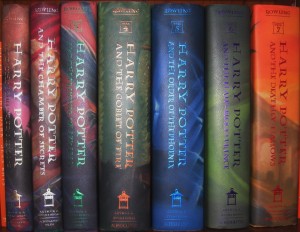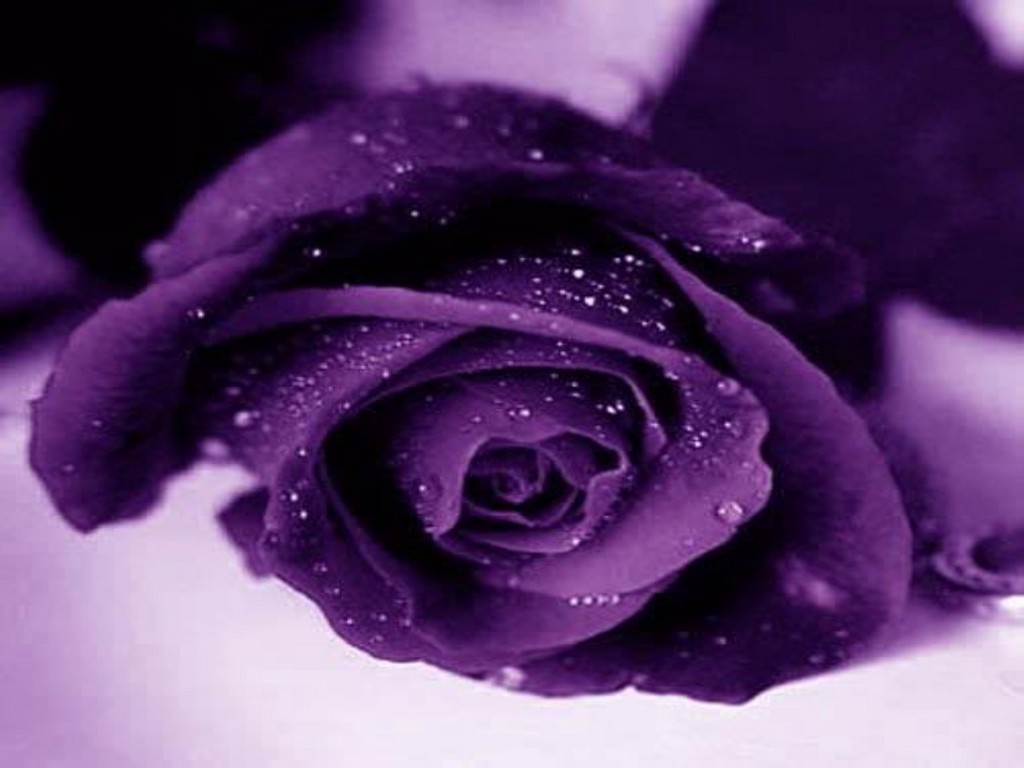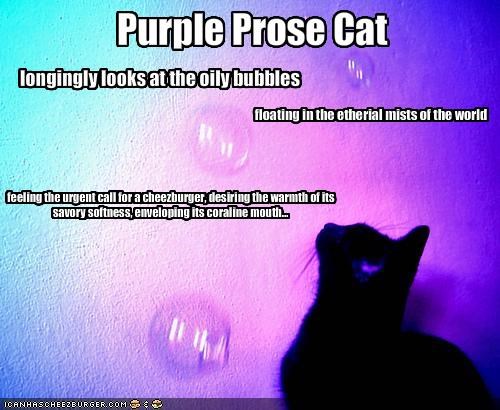by Naomi L. | July 31, 2013 | Blog, Creative Writing, Notable Authors |
Last month, I started a topic on my blog about sources of inspiration for my writing, which I opened with a couple of posts about Roald Dahl and one of his wonderful novels. Now I’d like to continue on the topic by passing the spotlight onto another author who has greatly inspired me in my writing, and since today is her birthday, I decided this would be the best time to include her in the segment. Featured today among my blog’s Notable Authors is world-famous fantasy author: J.K. Rowling.

J.K. Rowling in 2010
Bio
Name: Joanne Rowling
Pen Name: J.K. Rowling
Life: Jul. 31, 1965 – present
Gender: female
Nationality: British
Occupation: novelist
Genres: fantasy, tragicomedy, crime fiction
Notable Works: Harry Potter series, The Casual Vacancy, The Cuckoo’s Calling (under the pseudonym Robert Galbraith)
My Favorite Works: All the Harry Potter books, but especially Harry Potter and the Deathly Hallows (Book 7)
Inspiration
J.K. Rowling is a world-renowned British novelist, best known for her highly acclaimed Harry Potter series. I was first introduced to her work in my childhood, when my best friend at the time gave me the first two books in the series as a birthday present, and it took me less than a chapter to be hooked for life. The author created such a vivid and imaginative world in Harry Potter and the Sorcerer’s Stone (or Philosopher’s Stone in its original UK title) that I remained loyal to the series for the rest of my childhood and my entire adolescence, reading every new book as it came out until finally closing the back cover on the epilogue. Like so many young readers of my generation, I had been captivated by the magic of Rowling’s imagination.

Harry Potter, Books 1-7
Though she’s established herself as a versatile writer, it’s likely Ms. Rowling will always be known first and foremost as a fantasy author, and it’s as such that she’s inspired me in my own writing. The Harry Potter books not only brought me countless hours of entertainment growing up, but they also taught me a lot about the incredible amount of detail that goes into constructing a fantasy world, something I hope to be able to accomplish myself someday. But it wasn’t just her settings that fascinated me; the author also had a gift for constructing characters that I found engaging and relatable. It was interesting that she seemed to know exactly how to write a coming-of-age story for a male protagonist and make his character believable from the innocent age of 11 to the maturity of age 17 and beyond. On top of that, her attention to detail didn’t stop at Harry, for the rest of her characters were just as well-developed, especially the major ones present throughout all or most of the series. With so much work and care put into creating the world of Harry Potter, it’s really no mystery why I was only one among millions of readers worldwide who were touched by Rowling’s amazing stories.
Now I know that this famous children’s series and its supplements aren’t her only works, but because these are the only books of Ms. Rowling’s that I’ve read (so far), I can’t give a subjective review of The Casual Vacancy or The Cuckoo’s Calling yet. However, I can express my admiration for the author’s ability to step outside the fantasy “brand” she established for herself and still manage to create stories that are generally well-received by her audience. What truly amazed me was hearing the recent news about the latter novel, which she secretly published under the pseudonym Robert Galbraith in an attempt to evade the pressure that comes with being one of the most famous writers in the world. Sure, it didn’t become a bestseller until after its author’s true identity was revealed, but early reviews were still mostly favorable considering it was believed to have been written by a debut writer. If nothing else, it’s inspiring to see how Rowling continues to pursue writing in the face of all the hype around her and keep on creating the stories she wants to tell the world.
J.K. Rowling has been an inspiration to me for her wonderful fantasy writing and the joy her novels have brought me for most of my life. Being an aspiring fantasy author myself, her stories have served as great motivation for me to create my own magical worlds with the same level of care and detail that she put into Harry Potter. While I admire Roald Dahl as the author who first inspired me to become a writer, I will always revere J.K. Rowling as the gifted storyteller who kept me on that path for life.
Happy Birthday, Ms. Rowling! And congratulations on all your amazing achievements! From the bottom of this young dreamer’s heart, thank you.
by Naomi L. | July 29, 2013 | Blog, Word of the Week |
Word: ersatz
Pronunciation: ER-sahts / ER-zahts / er-ZAHTS
Part of Speech: adjective
Definition:
- made or used as a substitute for something else
- not real or genuine
Source: Oxford Dictionaries
Today’s Word of the Week was suggested to me by my mom, who discovered it through her most recent TV obsession: Downton Abbey. Apparently it’s a word that’s been used a few times in the series, and since I had come across it before while studying vocabulary for standardized tests, I agreed that it would be an interesting word to include in this segment.
According to Oxford Dictionaries, there are two similar definitions for this adjective. An “ersatz” product is a substitute for a higher-quality version of that item, while anything else defined as “ersatz” is simply fake. Either way, it’s used to refer to something that isn’t the real thing. Now if you’re thinking this word sounds a little different from all the others featured in my Word of the Week posts before, it’s because this one is the first in the segment to come neither from Latin nor from Greek. “Ersatz” is actually a German noun meaning “replacement”, which also functions as a part in compound words (most notably Ersatzkaffee, or “ersatz coffee”).
So how did this German word seep its way into English vocabulary? “Ersatz” evidently started being recognized outside of Germany during World War I (hence its use in Downton Abbey, or so I presume), as it was used in terms referring to replacement military troops (Ersatz Corps) and substitute products developed during the war. Its transition from a noun in one language to an adjective in the other is due to grammatical differences between English and German; for instance, while a word like Ersatzkaffee is a compound noun in German, English-speakers who easily recognize the second half as “coffee” would logically assume the first syllables make up the adjective describing the familiar noun (which would probably translate to something like “false coffee”).
It’s worth noting that while the word can have either a positive or a negative connotation in German, its English uses generally imply inferiority. As far as how one might use it in writing, my limited experience with the word tells me it likely fits best in historical fiction, as it does have an archaic feel to it (when was the last time you heard someone call something “ersatz” as opposed to just “fake”?) Still, it could also appear in modern dialogue involving academically accomplished characters (such as Leonard’s neuroscientist/psychiatrist mother analyzing Howard and Raj’s friendship as an “ersatz homosexual relationship” on The Big Bang Theory). In my opinion, the word’s historical origins alone make it interesting, so feel free to get creative with it. Whether you choose to use it in a World War-themed novel or a conversation between characters of differing linguistic backgrounds, “ersatz” can be a great word for adding a foreign touch to your writing. Have fun!
What are your thoughts on this word? Any suggestions for future “Word of the Week” featured words?
by Naomi L. | July 26, 2013 | Flash Fiction, J.C. Wolfe's Writing |
(Flash Fiction Contest Winner!)
She didn’t tell me she was pregnant until the end of the session.
Four years I’d been with Lorraine. She should have known I hate surprises.
“Say something, Charles.”
What could I say? I love my wife; I didn’t want anything to ruin what we had. Not even a child.
“Anything, please.”
She watched me scribble on a pad I pulled from my pocket. I walked up to her chair and dropped a cashier’s check for fifty thousand dollars in her lap before finally leaving her alone with one last haunting farewell.
“Tomorrow, I start looking for a new therapist.”
This piece was my entry for the Flash Fiction Contest recently held by Writer’s Carnival. The rule was to write any story as long as it was exactly 100 words in length. After winning first place with my story (yay!), I decided to share it here on my blog for others to read. Enjoy!
Special thanks to Writer’s Carnival for hosting the contest! Thank you again for naming me the winner! I’m honored!
by Naomi L. | July 24, 2013 | Blog, Creative Writing, Featured, Tropes |
I’m polymerized tree sap and you’re an inorganic adhesive, so whatever verbal projectile you launch in my direction is reflected off of me, returns on its original trajectory, and adheres to you.
– Dr. Sheldon Cooper, The Big Bang Theory (Season 1, Episode 13 – The Bat Jar Conjecture)
Fans of the comedy TV series The Big Bang Theory likely remember this quote from the Physics Bowl episode, when Sheldon reacts to an insult from fellow physicist Leslie Winkle by saying as condescendingly as possible that “he is rubber and she is glue”. However, the fact that he seems to go out of his way to use the most advanced vocabulary possible in his retort only adds to the hilarious running gag of Leslie always managing to beat her rival at a game of wits.
So what lesson should novice writers be learning from Sheldon’s backfired comment? That trying too hard to sound smart often has the opposite effect than what you might expect, that is, it hurts more than it helps.
What is this amethystine composition of which you speak?
Writing that is overly decorated with fancy words and elaborate details is known as “purple prose”. It’s an especially common practice among inexperienced writers, who often believe that to write a really good story (or improve upon an existing dull one), one needs to dress up the prose with as many big words as possible to make their work look sophisticated. Basically, beginners seem to have this grand illusion that great literature is that which stands above the level of everyday speech.

Purple prose: Contemplate this exquisite aubergine blossom of the Rosaceae family
Everyday speech: Look at this beautiful purple rose
But here’s the problem with that logic: everyday speech is the level where most readers are, and more importantly, where they want to stay. Readers today don’t want to bore their way through long descriptions or have to pause at every other page to look up half the words they just read in the dictionary. They want writing that’s simple, that they can understand and find relatable, similar to the language they use themselves in the real world.
So I’ve been writing erroneously… I mean, wrong all this time?
Calm down, and take a second to note that I said “similar to”, not “the same as”. It’s OK to use some higher-level vocabulary and detailed narration in your stories, for when done in moderation and in tone with the style of the work, these can actually add to the quality of your writing. The danger is using these tools in excess, because after you’ve passed a certain point in flowering up your prose, these details will begin to draw attention to themselves and away from the flow of your story. To sum up, a little is fine, but too much is bad. Write with caution.
Now before anyone accuses me of hypocrisy, allow me the chance to admit to this embarrassing fact: I am guilty of writing purple prose. Even if I don’t always choose the fanciest synonyms I can find to replace everyday words, I love decorating my writing with adjectives and adverbs, and I tend to use intermediate-level words where common ones would work just fine. That being said, I used to be much worse. When I first started writing, I had this idea that nobody would want to read stories written in the plain language of a ten-year-old, so even though I was already well-read for my age, I went out of my way to find “bigger and better” words for my fiction. It wasn’t until I started learning about common writing mistakes as a young adult that I realized how flowery my early writing was, and I’ve since been gradually cutting the bad habits of my childhood. So take it from a writer who’s still breaking out of the novice phase: tone down the purple and focus on writing simple prose. Your readers will appreciate it.
 It’s worth noting at this point that as strongly as most experienced writers will argue against this practice, prose style is and always will be subjective. It’s entirely possible for a writer to not only be aware they write such elaborate prose, but actually do it on purpose. So if you’re a beginning writer guilty of this trope, don’t feel bad right off the bat. Maybe your goal is to imitate the exact styles of writers like William Shakespeare, Charles Dickens and Jane Austen, and that’s fine. Just know that unless you’re going for satire, most of the audience who would take your work seriously has probably been dead for a few hundred years.
It’s worth noting at this point that as strongly as most experienced writers will argue against this practice, prose style is and always will be subjective. It’s entirely possible for a writer to not only be aware they write such elaborate prose, but actually do it on purpose. So if you’re a beginning writer guilty of this trope, don’t feel bad right off the bat. Maybe your goal is to imitate the exact styles of writers like William Shakespeare, Charles Dickens and Jane Austen, and that’s fine. Just know that unless you’re going for satire, most of the audience who would take your work seriously has probably been dead for a few hundred years.
But I want to be taken seriously today! What should I do?
Don’t worry, the “purple prose bug” is treatable! For those of you aspiring writers who wish to establish yourselves before you try to follow the great authors who bend the rules, here’s a quick list of common purple prose mistakes and how you can avoid them:
1) Excessive detail. Yes, describing the setting of a scene before the action starts is often essential to telling a good story, but please don’t go on for a dozen pages about the hundred different colors in the sky or the history hidden in every brick of every building. Just because authors like J.R.R. Tolkien and Victor Hugo could get away with it doesn’t mean you can. One paragraph should be enough to set your scene, but no more than two.
2) Overly decorated nouns and verbs. If you’re one of the millions of readers who have read all of J.K. Rowling’s Harry Potter books, you may have learned that nouns and verbs should almost always include a “modifying friend”. But Rowling is an exception, a world-famous author of one of the best-selling book series in history, which you are (probably) not. That means she can do whatever she wants with her writing, whereas you should practice creating basic prose before you work too hard to copy her style. Try not to use too many adjectives and adverbs in your writing. Though this may seem counterintuitive, many famous writers would agree that less is more. If you don’t believe so, read a story by Ernest Hemingway or Mark Twain, and you’ll see how writing can be great without the need for too many “attachments”. To quote Twain, “When you catch an adjective, kill it.”
3) Said bookisms. This is one of the most common mistakes made by beginning writers: the constant use of alternative verbs for the word “said”. There’s a general belief that when it comes to writing dialogue, “said” is too plain and overused, so writers should go out of their way to replace it with words like “asked”, “muttered”, “hissed”, etc. As a teenager, I used a lot of these in my writing; I wouldn’t be surprised if I read back a dialogue-heavy scene from one of my old stories and found at least three pages between consecutive uses of “said”. But even famous authors seem to be guilty of this sometimes (I’m given to understand there’s an entire blog devoted to poking fun at the purpleness of Stephenie Meyer’s Twilight series), so don’t feel too bad if you find your own writing full of these bookisms. The important thing is that you know you should fix them. Dialogue should convey tone by itself, no extra tags required.
4) Too much “fancy vocabulary”. Continuing from the example of “said”, some writers tend to try and find as many advanced-sounding synonyms as possible to substitute the common words in their stories. While this may be fine once in a while, you shouldn’t run to the thesaurus for every other word you want to write. Otherwise, you’ll end up sending your readers to the dictionary just as frequently. It’s great to learn new words, but think about it for a second: the more time you put into driving your audience to read another book, the less time they’ll spend reading yours. Try to stick to vocabulary that your readers will understand, and if you must throw in a higher-level word now and then, at least have the courtesy to make its definition clear in context.
5) Exaggerated sentiment. There isn’t a lot I can say here except that this is pretty much a writer’s attempt to manipulate the reader into reacting a certain way to their writing. Going back to the first item on the list, if you throw too much rhetorical writing into your stories, it comes across as you trying too hard to evoke specific emotions from your readers, which more often than not will have the opposite effect. Trust your audience to understand what you’re trying to tell them. If you write it plainly enough, they will feel it.
Purple prose is a dangerous habit of many writers, and while it may be OK for some, most should make a point of avoiding or overcoming it, no matter how difficult this seems. If nothing else, choosing to create simple and clean prose is a sign of respect to your work and your readers, so take care with your style of writing. I’m certainly still trying.
So what are your experiences with purple prose? Have you read stories that you found too flowery for your taste? Were you (or are you) ever guilty of making these mistakes yourself?
by Naomi L. | July 22, 2013 | Blog, Word of the Week |
Word: innocuous
Pronunciation: i-NAH-kyoo-əs
Part of Speech: adjective
Definition: not harmful or offensive
Source: Oxford Dictionaries
Little did he know that this simple, seemingly innocuous act would result in his imminent death.
– Karen Eiffel, Stranger Than Fiction (2006)
If you’ve seen the movie Stranger Than Fiction, you probably remember this iconic quote from the most important plot point in the story of Harold Crick. While resetting the time on his wristwatch after it inexplicably goes on the fritz, the narrating voice in the IRS agent’s head notes the irony that such a normally harmless act is what will lead to the untimely and heartbreaking end of his life’s story (at which point Harold understandably begins to panic).
To call anything “innocuous” – whether concrete or abstract – is to say that it’s harmless. The word is actually a prefixed form of the adjective “nocuous”, meaning “noxious, harmful, or poisonous”, though this stem seems to be used mostly for poetic writing than for modern prose. “Innocuous” comes from the Latin adjective innocuus (“harmless, innocent”), comprised of the elements in- “not” and nocuus “injurious”.
As far as I can remember, the first time I ever heard this word was while watching the movie Stranger Than Fiction. It sounded like an interesting word (though that may have been due in part to Emma Thompson’s lovely British accent), so I made a note to look it up, and have since included it a few times in my own writing. Although it may just seem like a fancy alternative to “harmless”, I find that when used once in a while, “innocuous” can add a certain charming note to a narrative that more common words like “harmless” and “innocent” seem to lack. Too much advanced vocabulary in your stories might be annoying, but using intermediate words in moderation is, in this writer’s opinion, an innocuous act.
What are your thoughts on this word? Any suggestions for future “Word of the Week” featured words?






Recent Comments